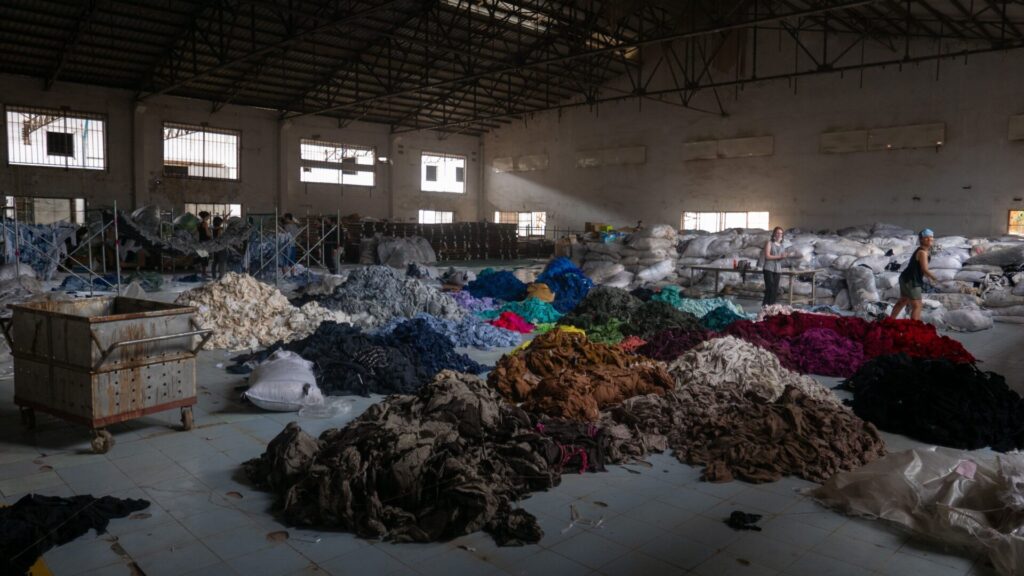BESTSELLER Participates in GFA’s Circular Fashion Partnership in Bangladesh


The Circular Fashion Partnership (CFP) is a global initiative to spur local action in textile manufacturing countries to accelerate and scale recycling of post-industrial textile waste – an effort to achieve a long-term, scalable, and just transition to a circular fashion industry.
The project facilitates circular commercial collaborations between global fashion brands, manufacturers and recyclers to enable and incentivise segregation and digital tracing of post-industrial textile waste to recycling solutions. The first CFP was initiated in 2020 in Bangladesh by Global Fashion Agenda, together with the Bangladesh Garment Manufacturers and Exporters Association (BGMEA) and waste traceability platform Reverse Resources with support from Partnership for Green Growth (P4G).
Being able to identify and digitally trace post-industrial textile waste streams, is critical to being able to unlock the opportunities of circular business models within manufacturing countries. There’s a significant demand from global fashion brands for recycled textiles, yet a very limited supply. Manufacturing countries such as Bangladesh have large quantities of consistent and high-quality textile waste streams that form perfect feedstock for textile recyclers. Through Reverse Resources platform, the CFP was able to track over 1500 tonnes of textile waste to suitable recycling solutions. Furthermore, several brand participants were able to go one step further and present the journey of their products made with recycled materials all the way to their end users.
By tracing and presenting textile waste streams, the CFP is not just matching feedstock supply of recycled materials with global brand demand, but also presenting opportunities at scale to increase awareness and create a conducive environment for circularity. In the case of Bangladesh, Reverse Resources estimated it could reduce its virgin cotton imports by 15% and save 750 million USD a year, by recycling its 100% cotton offcuts domestically.
In order to successfully implement effective waste stream structures across their supply chain, and ensure circular value is captured in manufacturing countries, BESTSELLER joined GFA’s Circular Fashion Partnership in Bangladesh. BESTSELLER recognised that textile waste is most often shipped back and forth in the process of becoming new recycled yarn and fabrics. In order to avoid just another negative environmental impact, BESTSELLER’s ambitious sustainability platform Fashion FWD Lab is piloted two different circularity projects in Bangladesh.
As part of the CFP, BESTSELLER onboarded three of its suppliers: Yasin Knittex Industries LTD., AKM Knit Wear Ltd. and GMS Composite Knitting Ind. Limited, who worked with Reverse Resources to set up textile waste segregation and digitally trace 153,9 tonnes 100% cotton waste to recycling solutions, such as Bangladeshi mechanical recycler CYCLO. By locally securing this high-quality feedstock and through continuous dialog and collaboration to match recycled material characteristics with suitable product specifications, BESTSELLER has incorporated CYCLO’s recycled cotton into 64,000 new garments.
CYCLO doesn’t use water, chemical or dyes in its process resulting in greater estimated environmental savings in comparison to conventional died cotton. According to the Life Cycle Assessment of a 70%recycled cotton-30%rPET mechanically recycled yarn by Cyclo: 1kg of recycled yarns saves 7.5kg of CO2 and 2,626 litres of water. BESTSELLER furthermore developed supportive communications to present its circular value cycle partners and the journey behind its recycled materials to end-users and engage them in further closing the loop.